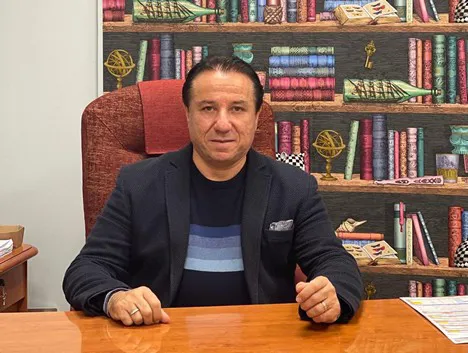"The Sicilian table grape campaign - characterized by a two-speed trend - ended pretty early," reports Giovanni Raniolo, President of Consorzio di Tutela dell'Uva da Tavola di Mazzarrone Igp, who does not hide his disappointment for a campaign that started well but which ended in the worst way possible.
 Giovanni Raniolo
Giovanni Raniolo
"Things were looking good during the early variety phase. Both production and commercialization were in line with what planned, also thanks to the weather which favored a correct bunch formation and consumption. The Victoria, Black Magic and Red Globe varieties did well, with average quotations in June between €1.20 and €1.50/kg, which settled in August between €0.80 and €1.00. The quotations of seedless varieties were much higher and they did particularly well especially in international supermarket chains."
"Afterwards, the hot temperatures in August (which exceeded 45°C for days) entirely compromised the productive process of medium-late grapes. Fruits did not develop well and had a limited shelf-life. Plus, they lacked crunchiness, so the markets penalized us. Prices were awful hovering around €0.40-0.50/kg and a lot of the produce remained unsold, so much so that producers opted to give it to the processing industry. As if this was not enough, the excessive humidity and fog in November favored the formation of mold, which ended the campaign almost 2 months earlier than usual."
As President of the consortium, experienced entrepreneur and a pragmatic person, Raniolo transformed this loss into an occasion to make a consideration. Is is still acceptable for agriculture to remain at the total mercy of atmospheric phenomena? What can be done, and what must be considered imponderable?
"The dramatic outcome of this campaign cannot be archived without the entire sector asking itself a few questions. Climate change is unavoidable and we need to learn to live with it, though we must do something. The research world, traders' associations and social partners must be aware of our problems, which will no longer be just ours when the collapse of the Sicilian/Italian agricultural economy will become a serious structural problem within a system that is largely based on this sector. When our problems will unfortunately have a social impact, it will be too late. We need to act now and make experts aware of our problems, involve science and politics in choices. We need to understand what to do. What are the technical choices to make? Can we think about 'climate-resistant' varieties? Who can fill the infrastructural and logistic gap? But these are just some of the questions, I would like to initiate a debate to obtain a list of questions and, most of all, a list of interlocutors they can be presented to. There is only so much companies and consortia can do, then it's the job of other levels to intervene. Everyone must now do their part."
